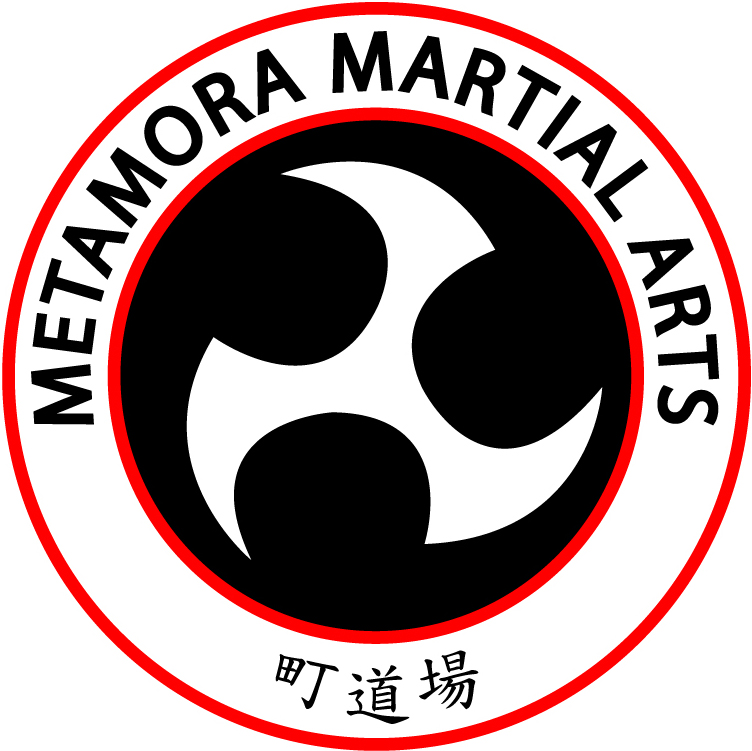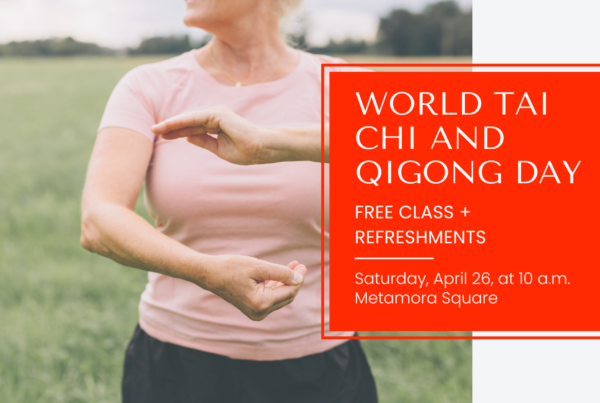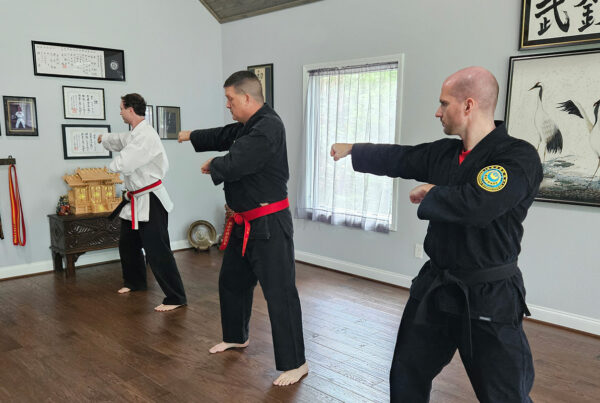One of the biggest joys of my life has been learning tai chi chuan in my 20s and 30s.
Over the years, I’ve seen a number of people struggle with learning the art, myself included.
These struggles include the terminology and just fitting it into our days.
Here are six potential drawbacks you’ll need to keep in mind about tai chi chuan so you can assess whether you want to start learning it, or whether you want to keep learning it.
1. The Movements Have Complicated Names
The postures in tai chi chuan have colorful names.
Sometimes, at least in my opinion, those names make it challenging to remember the movement.
What does “White crane spreads its wings” even mean, anyway?
What stance are you in?
What are you doing with your hands?
Are you moving side to side or up and down?
That’s just one example of what could be considered a tricky posture to learn as there are several things happening all at once in the same movement.
In karate, a movement is pretty self-explanatory: “You’re in a horse stance performing a middle block.”
When you know what a middle block and a horse stance are, you add the two together and have a rapid understanding of the technique.
Tai chi chuan can take longer to learn because the posture names aren’t always obvious.
2. Learning Tai Chi Chuan Can Take A Long Time
Besides learning the often mystical names of the postures, you have to learn what order they go in.
Learning any martial art isn’t like joining a group fitness class where you often pick up the movements on day one.
It’s a practice that builds knowledge, skills, and abilities over time.
For our example, our long form has 181 movements.
I learned the form over the course of about three years, adding a new section every few months.
After a few years, I had all nine sections.
However, many people won’t practice tai chi chuan for years at a time.
That’s why sets of 24 or 48 movements have been developed: to preserve the essential tai chi chuan spirit while speeding up the learning process to provide more immediate benefits to a student.
Be patient with the learning process and reap the rewards from it.
3. Tai Chi Chuan Competes For Attention
We all have a lot going on in our lives.
Maybe something is broken at home that we need to fix.
Maybe the class fee puts a strain on your budget.
We’ve got activities like sporting events or concerts to attend for our kids or even grandchildren.
Or, you may have a game night or something else to attend during a regularly scheduled tai chi chuan class.
Whatever the case may be, tai chi chuan may compete with other activities for your attention.
Even if you make it to class, you may be inclined to discuss the news of the day with your fellow classmates instead of practicing your form.
That time takes away from learning the art.
Ultimately, you’ll have to prioritize what matters most to you in determining whether you’ll attend class and how you’ll spend your time once you’re there.
4. You Could Hurt Yourself
Tai chi chuan is widely regarded as a safe activity for most people.
“A 2019 review of 24 studies (1,794 participants) found that the frequency of adverse events was similar for people doing tai chi, another active intervention, or no intervention,” according to the National Center for Complementary and Integrative Health.
But, tai chi or tai chi chuan classes are not without risks.
“The adverse events that were reported as related to tai chi or other active interventions were minor, such as musculoskeletal aches and pain.”
For example, those aches and pain could be a result of:
- Twisting your neck, knees, or back.
- Hyperextending your elbows or knees.
One unintended result of tai chi chuan practice could even be falling after losing your balance, potentially resulting in a bruise, cut, or fracture.
Bruises, cuts, or finger or toe jams could also develop following the practice of self-defense techniques with a partner or against a pad or bag.
While the likelihood is low under the supervision of a qualified instructor, tai chi chuan could result in unwanted injuries.
5. There Is No Off-Season
Resting up those nagging injuries could be challenging since there is no off-season in tai chi chuan.
It’s not a traditional sport that only picks up at a certain time of year.
Martial arts are a lifelong pursuit.
Classes and seminars are often held year-round.
If you need time to heal up an injury, or you’re just burned out from life in general, discuss how you can modify your involvement with your instructor before deciding to take time off.
6. You Might Think You’re Turning Into A Fighter
Make no mistake that tai chi chuan improves strength, coordination, and balance, among other attributes.
You may even learn self-defense techniques hidden in the postures you practice that could save your life.
Please don’t confuse a relaxed practice with a real, life-or-death scenario.
As students and instructors, we’re willing to provide our bodies so that you may learn the proper techniques.
This means that we’ll stay standing in front of you after we’ve both imagined you performed a self-defense technique on us.
Someone trying to steal money from you (or worse) won’t be so kind.
A fight is messy:
- You’ll move around more, perhaps wrestling with your opponents. The ground may be slippery or uneven, or the weather may be extremely hot or cold.
- You may experience tunnel vision and miss what’s happening in your periphery.
- Your fine motor skills will suffer as your heart rate increases and your body kicks into fight-or-flight mode.
- Your mind will work overtime to help keep you safe.
That’s entirely different from a safe, low-risk, climate-controlled class.
Overall, tai chi chuan can be a real boost to your health.
But just know going into a class that there are risks involved.
Now that you have a good understanding of these potential cons, you can better assess your participation in a tai chi chuan class near you.

Photo by BATCH by Wisconsin Hemp Scientific on Unsplash




